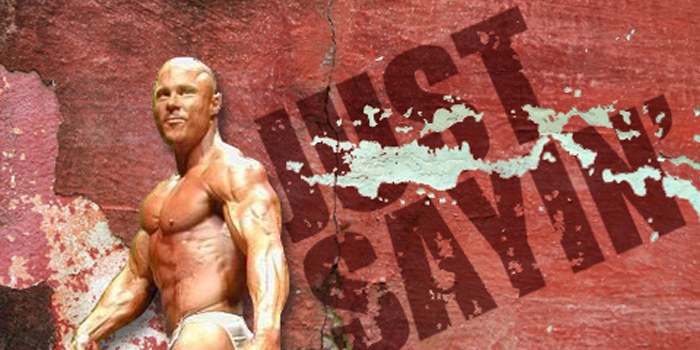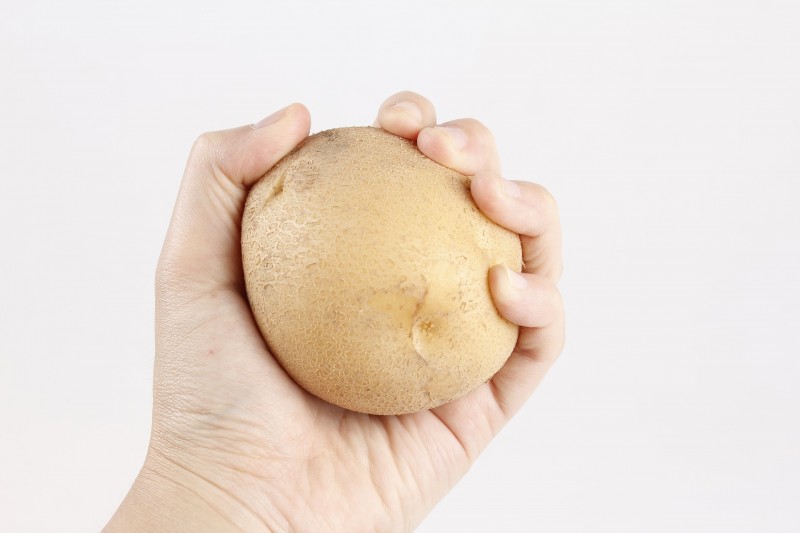
Based on your interpretation of the title of this article, I would assume you are expecting some Zen-like, very deep, and verbose explanation of carbohydrates. If so, you are wrong. I’m not deep, I’m not Zen-like, and I’m not verbose. The obvious being stated, I do believe that most people have a very warped (or at least very poor) understanding of how carbs work, what carb timing really means, and how to not get fat eating carbs.
If I had a dollar for every time someone told me they were “carb-sensitive”, or they can’t eat carbs without getting fat, I could take your mom to a much nicer dinner—almost guaranteeing my way into her pants—without having to go the cheap route of loading her up on box wine and Carl’s Jr. The point isn’t how filthy your mom is (but trust me, she is), but rather that most people are convinced that carbs don’t do much other than make them fat. I am going to explain to you why you are wrongo-dongo and make it clear that carbs are your friend, if you understand how and when to use them.
RELATED: How to Naturally Manipulate Insulin to Improve Body Composition and Performance
Glycogen 101 says simply that when you deplete muscles of glycogen your body then has a need for carbs, and those carbs will be stored as glycogen and not stored as fat. That is about as simple as I can explain it right there. If you train your ass off, you will have a need for carbs. If you train with high volume, you create a need for more carbs. If you train with low volume, you will not have as much of a need for carbs. And if you don’t train at all and are the average sedentary American, you could potentially get fat as hell from carbs. Why? Because your body has no need for excess carbohydrate.
Why then are you getting fat from carbs? You are eating too many carbs, Fatty McFat Fat.
I have competed for 25 years and though I say I am done, I likely am not. I’m a bodybuilder — we say we are going to stop, but we rarely do. I have competed for decades and have gotten thousands of people into ridiculous condition WITH CARBS. I have taken the large majority of clients that have come to me and proven to them in a couple months that not only are they not going to get fat on carbs, but that the carbs can work for them and work to increase their metabolism. Is there that occasional person that truly cannot get lean eating hardly any carbs, at all? Yes. Just know that we are talking a very small percentage of those that say or think they can’t.
Timing is key.
Here are three timing principles that I use with my clients and feel strongly will allow almost anyone to ingest carbs and get leaner.
1. Have the right amount of post-workout carbs.
Duh, right? This has been accepted by the large majority for years and for good reason. You finish working out and glycogen stores are depleted. Your body will suck up carbs post-workout and store them quite efficiently as glycogen. I have not once seen post-workout carbs get in the way of someone getting shredded. I have, however, seen too many post-workout carbs get in the way of someone getting shredded.
2. Eat carbs later in the day after you weight train.
No, I am not just referring to the above post-workout carbs, but to the few meals following the post-workout meal. Depending on your metabolism and your current level of daily activity, you could benefit from another one to three meals consisting of carbohydrates. There are a myriad of variables, however, so you need to take into consideration examples like:
- Daily Activity Level
- High vs. Low Training Volume
- High vs. Low Training Frequency
- Metabolism — If you rip through calories and have a fast metabolism you almost certainly can get away with a higher intake of carbohydrate.
- Age — Though this isn’t always a black and white variable, typically we tend to burn fewer calories as we age.
When you weight train you are using stored carbohydrates in the form of glycogen as your primary fuel source. Ingesting carbohydrates prior to training or even a couple meals prior to training is not necessarily needed and can bloat and distend you, making your gut uncomfortable when you train. To paraphrase: It’s difficult to train all-out when you feel you might shit your pants while doing bent-over rows.
3. Plan for carb-up days.
I prefer to call them Skipload days, but that’s just me.
After days of dieting on restricted carbohydrates, the muscle depletes of glycogen considerably and in turn, the metabolism tends to slow down. One to several meals in a day of higher carbohydrate foods will not only fill out glycogen stores in the muscle, but also amp up your metabolism and have it running hot so that you can continue to burn calories at an efficient rate when you return to your typical dieting meals.
If you see the recurring theme here where depletion of glycogen predicates the need for carbohydrate intake, you go to the head of the class. As long as there is depletion of glycogen, there is a need and use for carbohydrate intake. And when there is a need for carbohydrate intake, carbohydrates are far less likely to be stored as body fat. Yes, if you take in more carbs than you need post-workout, you will store those carbs as fat. Yes, if you take in too many carbs on a carb-up day you will store those carbs as fat. You just need to figure out your carbohydrate requirement and you won’t be able to continue to blame carbs for you being fat and ugly.
Okay, just fat. Blame your parents for you being ugly. Not your mom, though, just your dad. Your mom is fine — at least when I am drinking box wine with her.
Just Sayin’.











